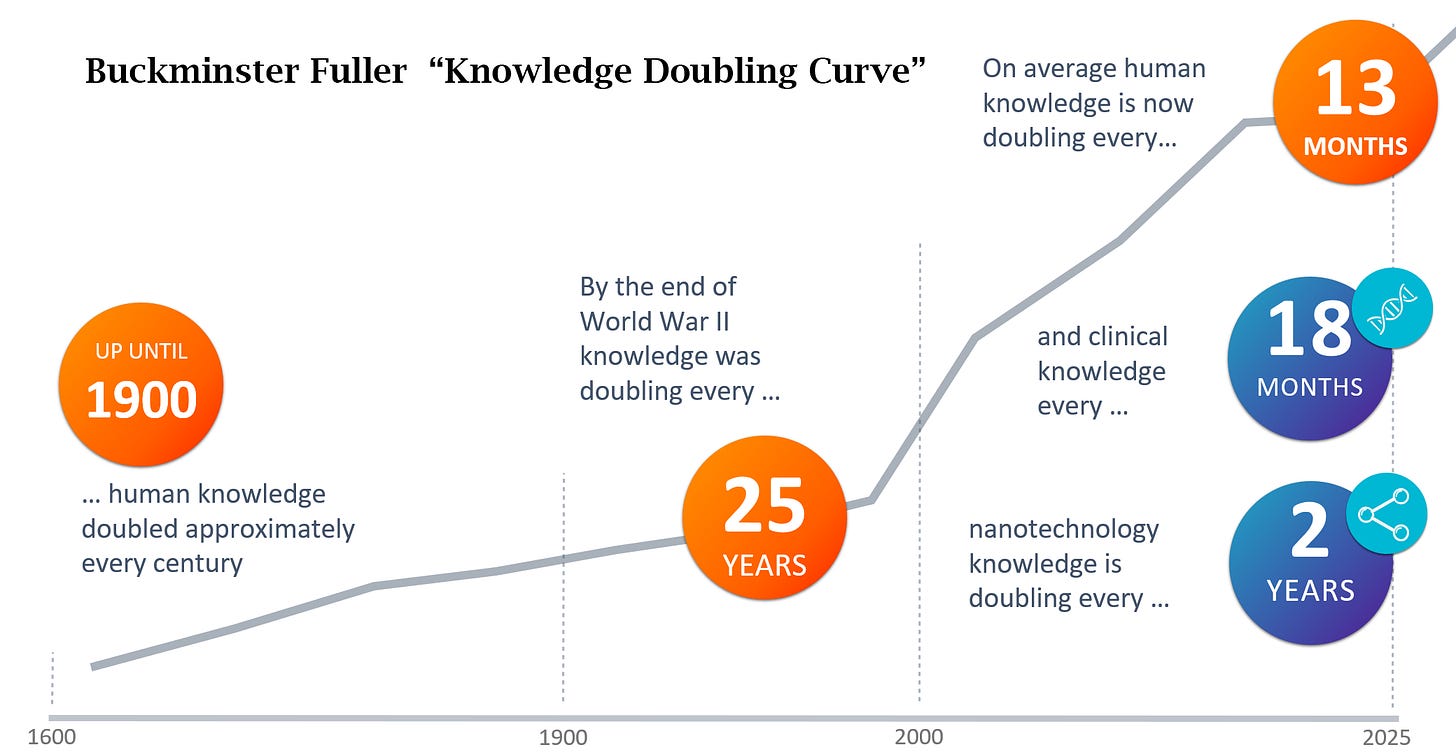These Two Things Will Ensure Long-term Success. And They Have Nothing to Do With Money or Fame.
Patience is an overlooked virtue, but the one who through patience is gentle but persistent will move mountains.

Through patience a ruler may be persuaded, and a gentle tongue breaks bone
~Proverbs 25:15
The age we live in is SO LOUD!
I’m amazed at how I literally have no ability to escape the noise, the deluge, the onslaught of intrusive, loud opinions all vying strenuously for my attention. It seems like once my attention is given, then my alignment is now desired, then subscription, and ultimately enslavement. People don’t want my attention, they want to lock me into THEM! Their way of thinking, their product, their ideology.
Not only is the current noise loud, it demands an immediacy. Action today! Give to my cause TODAY! Do something TODAY! Hate your neighbor TODAY!
THAT’S what currently modern culture, especially in America, seems to be all about. Everyone has a voice, everyone seems to want to express this voice, because we have the medium (the Internet and social media) by which everyone’s voice can be expressed - good, bad, right, wrong.
I feel for the younger generation. I’ve heard it said that a young person in their teens today is the recipient of more information in ONE DAY than what a young person in their teens received in the early 1900’s in ONE YEAR!
Below is a great example of how much knowledge is increasing at the rate that it is.
With knowledge increasing, with the push/pull struggle for ideological supremacy, with the culture wars in full swing, how does one cope?
LIVING A LIFE OF MEANING
It is very easy to get caught up in what’s happening today. In today’s current scene. In how society engages, and how we are all expected, in many ways, to conform to certain ways of thinking.
What I’ve observed is several approaches, taken by people, to cope. Here is a brief snapshot of some of them:
Totally conform. Be one of the crowd. Mouth the accepted slogans that are repeated ad nauseam on every media outlet. Be strident in your convictions, which happen to be someone else’s convictions that you have taken as your own (usually unwittingly).
Totally resist. Whatever the crowd, the mob, the group wants - make a very loud and strong point about how you are NOT that, how you are so different (and right).
Retreat into a shell, avoid society, watch Netflix, try to survive.
Whereas none of these are exhaustive, and mostly tongue-in-check, I do believe there is a smattering of truth in the above three options. There is something on a certain level that demands our attention ON THAT LEVEL In that sphere. In that ballpark.
What I’m advocating is something different. To not engage like that, but to know who you are, what you are about, apart from this world, this scene, this sphere, this society and culture and be something different. HOWEVER, if you are different, you will face resistance. And when you do:
Through patience a ruler may be persuaded, and a gentle tongue breaks bone
Therefore, whatever strategy you employ to cope, whatever direction you head towards in spite of everything that strives so hard to corral you, whatever activity you decide to do, invariably you will face a learning curve, inevitable opposition, resistance (in yourself and others), opposing views, and outright blockades.
If it is a new skill you want to learn, or start up a business, or express a view in a certain public forum, or move your life in a new direction - there will be friction in certain and various ways. Especially if you go against the grain, ESPECIALLY if you are not aligning with the perceived crowd, the current “accepted” way of thinking, the “right” way of thinking.
Patience with consistent gentle pressure is the key. Consistent meaning daily consistency. Which means the creation of a habit of consistency. Gentleness means that your approach shouldn’t be “in your face”, loud, obnoxious, or combatful, but relatively calm, measured, but also purposeful. However, I’m not advocating passivity as the answer. I just mean that the application of a steady, consistent exercise of pressure towards a stated goal or in a stated direction.
DIOGENES THE CYNIC MEETS ALEXANDER THE GREAT
This excerpt will seem like a digression but read this story anyway. I’ll explain at the end of it.
Diogenes was a rare bird in ancient Athens of Greece. He lived in a ceramic pot in the streets (unlike most of his compatriots), sometimes performed his bodily functions in the public marketplace, voiced his opinions about society and people in insightful but offensive language. However, he was a keen observer of life, humanity, society, politics and people. People came from long distances to hear directly his wisdom. Diogenes was a significant and influential person of history.
On the other hand, in opposite fashion, Alexander the Great was also one of the most significant people in history but in a different way. He was a military genius that conquered the known world by 331 B.C. at the tender age of 32. He was the supreme ruler of what was civilization of the time, yet he was a known admirer of Diogenes.
There was a famous interaction between Alexander and Diogenes when Alexander traveled to Corinth to meet this strange but wise man. According to Plutarch, Alexander did find Diogenes, and asked him if there was any favor that Alexander could do for him. Diogenes famously replied “move a little to the right; you are blocking my sun”.
Alexander then declared “If I were not Alexander, then I should wish to be Diogenes”.
HERITAGE ART/HERITAGE IMAGES VIA GETTY IMAGES
Why is this significant? Diogenes could have asked for anything - gold, women, a place at court, land. But he didn’t. Did Diogenes dislike Alexander? We don't know. But what we do know is that Cynics like Diogenes prized one thing above all else: autarkeia, a Greek word that roughly translates into autonomy or freedom. And Diogenes knew that a "boon" from Alexander wasn't just a gift, but an attempt to buy his loyalty.
As Julie Ann Piering noted, philosophy professor at Northern Arizona University, “When you're indebted to a politician, a statesman, or even more so the emperor, you have lost your ability to speak freely and act freely," says Piering. "So not only does Diogenes not need anything from Alexander the Great, he doesn't want anything from him."(1)
This story about Diogenes and Alexander go hand in hand with the idea of patience that is applied through gentle, consistence pressure. What makes the idea that patience can work is the surety that the studied and purposeful positioning of your approach be aligned with something that is right and good. It is crucial that you are not beholden to anyone or anything, to not be “bought” (like Diogenes refusing to be “bought by Alexander) by the ideas and ideology of the age but to stand solidly in what you believe in and for, making sure that it is “right” and not just “right in your own sight” —
and if that is true THEN through patience, persistence, consistency you will win out in the end.
WISDOM LITERATURE
“Whenever you are really angry and upset, [remember] that human life is short and soon we will all be in the ground.”
~ Marcus Aurelius
The wisdom literature of the world is replete with the virtue of patience, consistency, and gentle pressure to see either see change occur or push back on perceived change that looks to be negative. THERE IS SO MUCH OF IT! Every religion and philosphy, every great thinker seems to have a take on the virtue of patience - which inherently links itself to gentle consistency of habitual action.
Without much differentiation, here are some snippets from Greek philosophy, the Hebrew Bible, Christian scriptures, Koran
Small steps taken gradually and consistently add up over time to make a huge difference” ~ Heraclitus
"O you who have believed, seek help through patience and prayer. Indeed, Allah is with the patient." (Quran 2:153)
"With patience, you can overcome any difficulty." - Gautama Buddha
“Have patience. All things are difficult before they become easy” ~ Saadi of Shiraz
“Patience and perseverance have a magical effect before which difficulties disappear and obstacles vanish” - John Quincy Adams
What is helpful to review what has been said about patience is just how widespread the idea is to the thinkers of history. Patience is a virtue BECAUSE it is learned, not because we inherit it, or obtain it effortlessly. We go through difficulties by which we learn patience - if we understand that it is one of the reasons for difficulties in the first place.
THE THOUGHT TO THINK
The main thought that I think a lot about is this: where am I going (now)? What am I doing? How can I do something that is meaningful (to me)? I know in my heart this creates happiness and fulfillment, a sense of peace and joy, but why am I always facing opposition when I head in a direction I KNOW is the right one for me?
Shouldn’t it be easy if I’m doing the right thing??
My answer is this: it not only takes knowing what you are doing and why, it takes patience and consistent gentle pressure to see success over time - to eventually come into the zone of where you want to be. I now know that achieving a goal is not the goal, its the journey that provides the sense of fulfillment and happiness. But shouldn’t we feel good while on the journey? WHY IS IT SO HARD?
Everything is hard - and it is hard because, in my opinion, the “hardness” is the teacher. We learn through mistakes, failure and adversity. Therefore, the virtue of patience and consistency will persuade the ruler - whatever is ruling today. A certain way of thinking could be “the ruler”. A certain ideology certainly can be a ruler.
Patience and gentle pressure on a consistent basis will break something hard that is opposing - it will “break bones”, as it says in Proverbs. When that point is reached, you will have changed, developed and matured.
In closing, I’ll leave you with the acquired wisdom of Aristotle:
"Excellence is an art won by training and habituation. We do not act rightly because we have virtue or excellence, but we rather have those because we have acted rightly. We are what we repeatedly do. Excellence, then, is not an act but a habit."




